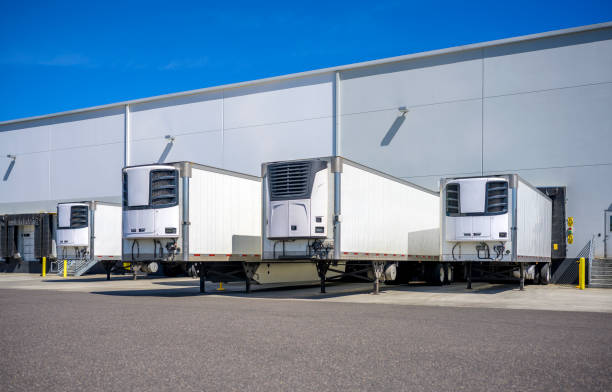In the fast-paced world of logistics and transportation, the demand for temperature-sensitive deliveries is at an all-time high. From fresh produce to pharmaceutical supplies, the need for precise cooling systems has made truck refrigeration units an indispensable part of modern supply chains. But how do these units work, and why are they so crucial? This guide explores the key aspects of truck refrigeration, its benefits, and the latest advancements in technology.
A truck refrigeration unit functions much like a home refrigerator but on a larger and more sophisticated scale. These systems rely on three main components:
-
Compressor: This device compresses and circulates refrigerant, which absorbs heat from the cargo space.
-
Condenser: The heat absorbed by the refrigerant is expelled here, ensuring the cooling process continues efficiently.
-
Evaporator: This part transfers the cooled air inside the truck's insulated cargo area to maintain the desired temperature.
By continuously cycling refrigerant, these units create a controlled environment, ensuring that perishable goods remain at optimal temperatures throughout transport.
Several industries depend on refrigerated trucking to maintain product integrity and compliance with safety regulations:
From farm to table, refrigerated trucks play a key role in ensuring fresh produce, dairy, and meats reach grocery stores and restaurants without spoilage.
“Our business depends on reliable refrigeration units. Even a small temperature fluctuation can compromise an entire shipment.” — James Carter, Food Distributor
Many medications, including vaccines and biological samples, require precise temperature control. Failure to maintain the cold chain can render these products ineffective or even dangerous.
Flowers are highly perishable and need consistent cooling to maintain their freshness during transit to florists and supermarkets.
Certain chemicals must be stored at specific temperatures to prevent decomposition or hazardous reactions.
Refrigerated transport reduces spoilage and extends the lifespan of perishable goods, leading to less waste and higher profit margins for businesses.
Various global and regional food safety and pharmaceutical regulations mandate strict temperature control during transport. Advanced refrigeration units help businesses meet these standards.
With rising fuel costs, modern refrigeration units are designed to be more energy-efficient, reducing emissions and operational costs.
Advancements in technology now allow for real-time tracking and temperature monitoring, minimizing risks and ensuring transparency in the supply chain.
The refrigeration industry has witnessed several breakthroughs in recent years, enhancing efficiency and reliability.
To reduce carbon footprints, many companies are adopting electric-powered units, which significantly cut down emissions compared to traditional diesel-powered systems.
Some modern refrigeration units integrate solar panels to supplement power, making them more sustainable and cost-effective.
With IoT-enabled devices, operators can monitor and adjust temperature settings remotely, ensuring cargo remains within the required range at all times.
Using liquid nitrogen or carbon dioxide, cryogenic refrigeration provides highly efficient cooling solutions, especially for highly sensitive goods like vaccines.
While truck refrigeration units provide numerous advantages, they also come with challenges that operators must address:
Maintaining a refrigeration unit can be costly due to fuel consumption and maintenance requirements. However, investing in fuel-efficient models and conducting regular servicing can significantly cut costs.
A breakdown in the refrigeration unit can lead to cargo spoilage. Regular inspections and predictive maintenance can help prevent unexpected failures.
Governments and regulatory bodies continue to tighten standards for refrigerated transport. Staying updated on compliance requirements and adopting the latest technology can help businesses stay ahead.
The future of refrigerated trucking is geared towards sustainability and automation. Key trends to watch include:
-
Autonomous Refrigerated Vehicles: Self-driving technology may soon integrate with refrigeration units, optimizing delivery routes and reducing human error.
-
Zero-Emission Refrigeration Units: As the push for environmental sustainability grows, companies are investing in hybrid and fully electric cooling systems.
-
Enhanced Data Analytics: AI-driven data analysis will improve predictive maintenance, reduce downtime, and optimize temperature control.

Truck refrigeration units are essential for maintaining product quality across various industries. As technology evolves, businesses must adopt more sustainable and efficient cooling solutions to meet growing consumer and regulatory demands.
With innovations like electric refrigeration, real-time monitoring, and AI-driven analytics, the future of refrigerated transport looks promising. Staying ahead in this industry requires not just the right equipment but also a commitment to efficiency and sustainability.
As the global supply chain continues to evolve, refrigerated transport will remain a key player in ensuring goods reach their destinations in optimal condition.






